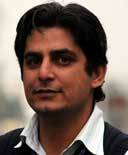Modern Turkey’s Erdoğan decade! |
Though The Economist brands AKP as ‘mildly Islamic’, the electoral success has more to do with redressal of grassroots problems on the one hand, and resounding success on the economic front on the other.
Erdoğan is neither a former military general nor a graduate of Harvard Business School. Hailing from noisy, lower middle-class Istanbul neighborhood of Kasımpaşa, this son of a seaman went to a state-run Imam-Hatip school to become a prayer leader.
Being third-term premier, he has not abandoned the streets of Kasımpaşa which inspired him to become the Mayor of Istanbul, a metropolis he had pulled out of shortages of bread, water and sanitation; and equipped it with effective eco-friendly bus and rail transportation.
The Hizmet Movement, a catalytic civil society network, still remains apolitical and welfare-oriented whose schools across 110 countries flutter Turkish flags, welcoming gifted children regardless of class differences.
Turkish Airlines (THY), the country’s national flag carrier, has been awarded Europe’s Best Airline award for the second consecutive time. Once in tatters, the THY most modern jets land and take off from over 200 destinations.
In the realm of sports, Turkey stands runner-up in international basketball ranking.
Though its economic indicators outshine many in 26-member European bloc, Brussels has been reluctant to open its doors for eight million-strong predominantly Muslim state.
Erdoğan says Turkey fulfills EU criteria but many of his compatriot businessmen believe that EU does not meet Ankara criteria. Turks critical of EU’s selective approach are no more excited about the idea.
Allure of the Turkish leader with a strong signature voice reaches across continents. The fragmented opposition parties, most of which sided with the deep state since 1923, dig at Erdoğan for being more popular in the Arab world or African Muslim countries than his own country. The AKP boasts its extrovert foreign policy practiced over the last decade as a success on diplomatic, political and economic fronts.
One of three key challenges confronting Erdoğan stems from foreign policy front too. Turkish businessmen and the general public await an early, less-bloody and genuine transition of power to the people in Syria, a country that offers land route to the bigger Middle East and the Gulf states. Maliki regime in Iraq and Ahmadinejad’s in Iran have been increasingly less favorable to Ankara owing to the latter’s sectarian leanings towards the Ba’athist regime in Syria.
The second major challenge confronting the AKP is rewriting of a modern, broad-based constitution to replace a 1982 military-era document that has triggered controversies of fundamental nature for over two decades. Ironically, the AKP has developed authoritarian tendencies with Erdoğan being at the helm of the controversies.
Yet Kemal Kılıçdaroğlu of CHP and Devlet Bahçeli of MHP, two opposition parties with a history of courting the military since 1923 and 1969 respectively, have failed to muster political support. While Erdoğan’s party in its third phase of transition and reform, its rivals still remain consumed with infighting and elitism. Kılıçdaroğlu and Bahçeli are the two most helpful opposition leader for the former Istanbul mayor.
Though the Kemalist media has been emotional, shallow and noisy, offering a little or no challenge to the leadership, the AKP leaders’ patience with the critical voices has been less than democratic. More recently, the best know independent and fearless media house in Turkey, Taraf, had to part ways with their finest editors. Erdoğan and his deputies alike may be larger than life icons in Turkey but they never shy away from picking fights with honest and sincere veteran journalists like Ahmet Altan.
Third and equally daunting is the task of addressing the concerns of the Kurdish region in the southeast where militants claim a dozen lives weekly on average. While recently amended Turkish constitution offers a golden opportunity to satisfy Kurdish concerns, their newly empowered cousins inside neighboring regions of Syria can further aggravate the PKK terrorism.
An amicable solution to these short-term challenges can extend the Erdoğan decades, where he would not be merely seen as a politician but a fatherly figure for all. Surely, from civil-military relations aspect to economy and conflict transformation, his Turkey serves as a model for many developing nations but more so for Pakistan.
Ironically, Turkey and Erdoğan both are not rightly understood amongst the Pakistani Intelligentsia.
Many Pakistanis see Turkey in a stereotypical manner where Kemalism is still being the dominant voice of the people, and Erdoğan is walking the footsteps of Mulla Omar. Neither of which is grounded in reality.








 Naveed Ahmad is an investigative journalist with special focus on diplomacy, security and energy politics. He jointly heads Silent Heroes, Invisible Bridges, a multi-lingual journalistic organization promoting cross-cultural, cross-religious effort for social integration and peaceful co-existence.
Naveed Ahmad is an investigative journalist with special focus on diplomacy, security and energy politics. He jointly heads Silent Heroes, Invisible Bridges, a multi-lingual journalistic organization promoting cross-cultural, cross-religious effort for social integration and peaceful co-existence.
Post new comment